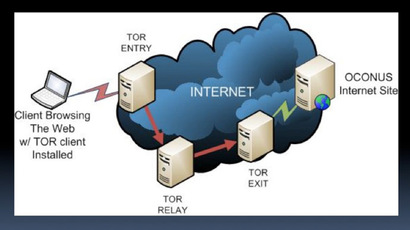FBI makes record $28 million Bitcoin bust

US authorities have reported their largest-ever Bitcoin bust amounting to $28 million of the digital currency. It was seized from the owner of the controversial Silk Road website, which was shut down three weeks ago.
A Friday statement by federal prosecutors in New York details the
seizure of 144,336 bitcoins, which were discovered on the
computer belonging to Silk Road founder Ross William Ulbricht,
alias “Dread Pirate Roberts,” Reuters reports. Ulbricht was
arrested Oct. 1 in San Francisco on several charges of
conspiracy.
Ulbricht’s lawyer could not be reached for comment, but the
accused earlier denied all the allegations.
Since its inception in 2011, the now closed website was an
anonymous hub for anything from drug deals to weapons and
computer hacking programs – even hiring assassins, the Justice
Department said.
The digital currency itself has been around since 2008, but it
was not until 2011 that authorities showed greater interest in
it, following the discovery of the connection to Silk Road and
the near to 1 million registered users regularly engaging in
illegal activities.
The current bust was part of a joint civil action against
Ulbricht and his website. He is expected to appear in court in a
matter of weeks to face charges of conspiring to traffic
narcotics, launder money and hack computer networks.
Ulbricht’s arrest and the bitcoin seizure followed a string of
international arrests of Silk Road users by Swedish, British and
US authorities, a testament to the scale of the international
crackdown on the website. The director of Britain’s newly-founded
National Crime Agency (NCA), Keith Bristow, warned Oct. 9 that
the “latest arrests are just the start” and “there are
many more to come."
Bristow added that bitcoin will also now be closely watched,
after his agency seized millions of pounds of the electronic
currency.
Together with the previous figure of 30,000 bitcoins, the new FBI bust puts the current value of seized currency at $33 million, the US Attorney General’s Office said. In the two years Ulbricht’s website was in operation, about $1.2 billion in bitcoins were traded. Silk Road charged between 8 and 15 percent in commissions.

Following Ulbricht’s arrest and the seizure of 26,000 bitcoins from a public wallet, an FBI-linked public wallet was discovered by Reddit users the next day. The owner could not be identified for certain, but bitcoin users quickly seized the opportunity to use it as a platform for voicing their opinions about the FBI.
They made tiny donations to the wallet, dubbed ‘Silkroad Seized Coins’ on another website – Blockchain.info, which allowed them to post comments – the majority of them bashing the FBI for trying to “control” the bitcoin business instead of seeking justice.
But even now, weeks after Ulbricht’s arrest, it remains unclear what the FBI have actually “seized.” To use bitcoins someone must have a private password corresponding to each wallet.
The previous public wallet seizure was carried out easily because those bitcoins were at the less-protected escrow account of the website, Extreme Tech wrote at the time of Ulbricht’s arrest. Ulbricht’s estimated $80 million personal wealth in bitcoins has remained inaccessible to the FBI, and it also remains unclear what the FBI would do with the bitcoins if they did have access to them – as the US government refuses to recognize the currency as legal tender.
The authorities may be able to prevent Ulbricht from transferring the money, but without having the ability to access the bitcoins, seizing them is not much more than simply confiscating a computer.
The success of the Silk Road website was attributed to its operating on the encrypted Tor network, which made its dealings nearly impossible to trace. One transaction would also generate a vast number of fake ones with the purpose of masking the original buyer and seller – another effect of Bitcoin’s anonymous and decentralized nature.














